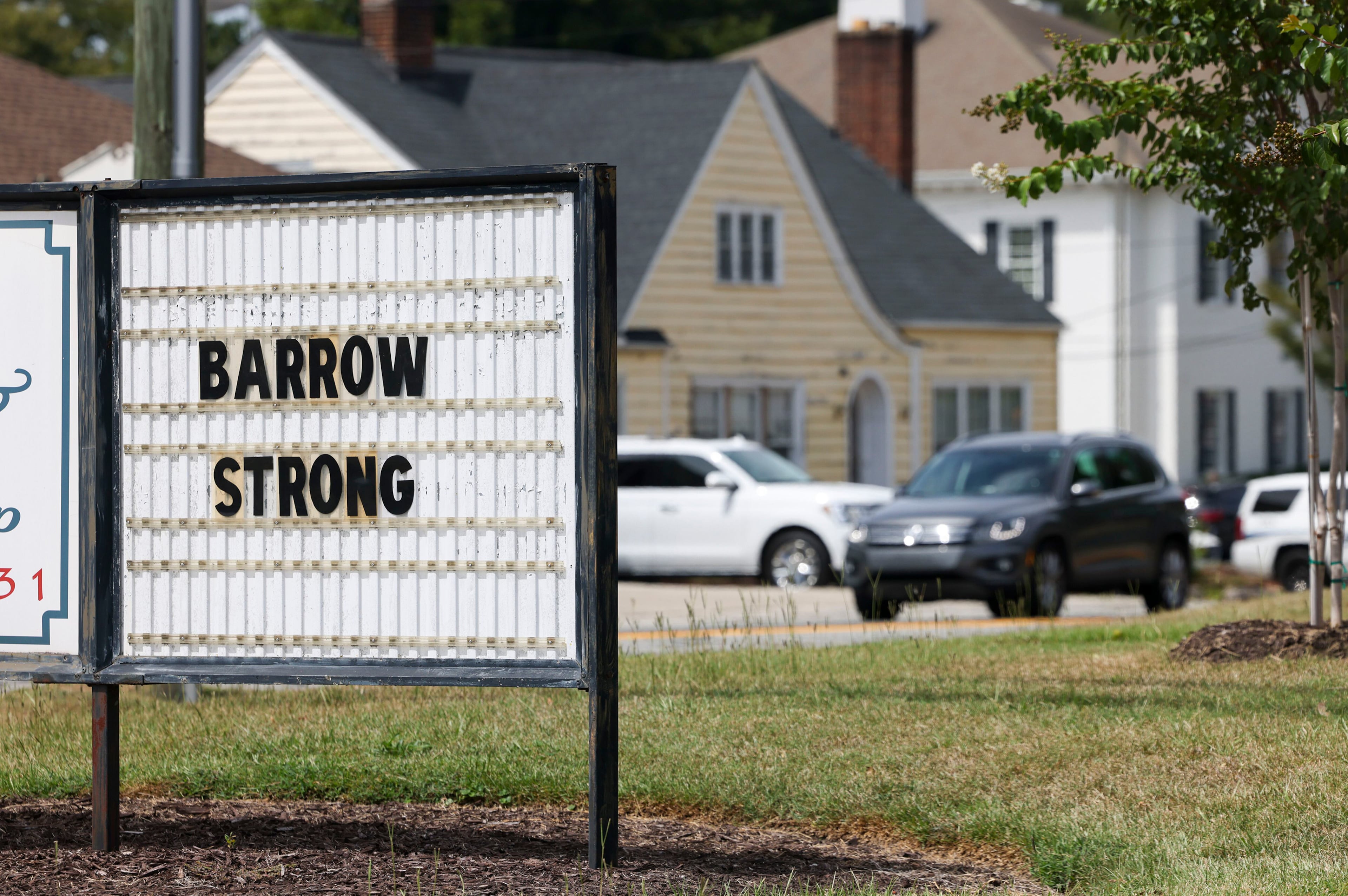Even in English, social studies, Gwinnett students keep up to data

Last year 34.5% of the sixth grade class at Sweetwater Middle School scored ‘proficient’ on the end of grade Milestones test for English language arts, and 26.5% scored proficient in math on the same assessment. Principal Jay Nebel wondered if those students could end up in the ‘distinguished learner’ category if they had a different way of learning.
(“Proficient” means the students have a pretty good grasp of the material. “Distinguished” means they’ve mastered it.)
“A big part of my leadership philosophy is to release the teachers to stay true to the curriculum, but try to engage the students in different ways,” he said.
Computer science teacher Shana White aims for that engagement by integrating core subjects — reading, math, science and social studies — into one big lesson with computer science as the glue that connects them all.
“We established an academy strategy with the belief that the best students will perform even better,” she said, and results so far are promising.
White was recently awarded a fellowship from the national Computer Science Teachers Association in a partnership with Microsoft and Silicon Valley nonprofit Puralsight One. Although her work at Sweetwater Middle isn't part of that project, it's similar.
“It’s still project-based learning where students combine cultural awareness with interdisciplinary lessons in literacy and numeracy,” said White.
Lessons have plotted food deserts in the neighborhoods where students live and used state and national data to help students understand how a school-to-prison pipeline exists.
“The students are using data science to understand the world they live in,” said White. “Those are things that they are interested in, and with other teachers we collaborate to interconnect learning.”
The AJC visited a class when they were studying Native American cultures. The students made bead patterns that combined some of the folklore and history of the tribes as well as mathematical algorithms to construct patterns. Algebraic lessons in ratios and slopes are part of the current curriculum in that area, and figurative language and creative writing are being studied right now in the English language arts class.
Alex Tran and Yhoshua Aleman worked together on a bead pattern that represented strength and vulnerability.
“The heart is broken because the boy in our story has no friends,” said Alex. “But here it’s fixed when he becomes part of a group and gains friends,” said Yhoshua.
Cecilia Ruiz, Katherine Ramos and Keecia Smith discused the plot points needed for the repeating patterns.
“Once you figure it out, it’s really easy,” said Katherine.
White's class had 39 students of color and one white student. And as a result of her working to increase girls' participation in computer science, there were 30 girls and ten boys.
“I’m excited at the progress we’ve made already,” said White. “Interim tests show several students are already on their way to becoming distinguished learners.”
Building those skills is another way of teaching the “whole child,” said White.
Chris Thompson, associate director of student programs at Georgia Tech's Center for Education Integrating Science, Mathematics and Computing agrees. He works with organizations that are expanding access to computer science in schools. He said in the not so distant future, computer science education will be a foundational skill, just like reading, writing and doing math.
“It leads to computational thinking that allows you to break problems down into components,” he said.
While there are varying opinions on which should come first, the computer science skills or the expertise in a specific area such as engineering or data analysis, the consensus is that there aren't enough computer science instructors to teach it.
“A lot of computer science skills are self taught for that reason,” said Thompson.
But the Georgia legislature is aware of that need and has mandated that computer science be taught in all high schools and middle schools. A bill signed in May by Gov. Brian Kemp allows the courses to be phased in over the next few years. It also gives school districts the authority to decide if those courses will be independent or part of an integrated system.
However it comes about, these skills strengthen local community, national innovation, and opportunities for youth. But only half of one percent of high school students are offered computer science classes, according to Gov. Kemp.
Computer science is the basis of most innovation today, yet most schools don’t prepare students to innovate and create the new technologies that drive local and national economies. This ability to innovate with technology is also important for students’ future success and ability to make a difference in a global society.
“I have 540 days to help these students become better prepared for the rest of their lives,” said Nebel, the principal. “If I can’t do that, I’ve failed as a principal.”
Computer science in Georgia by the numbers
17,854 open computing jobs in 2018
$90,913 average salary for computing jobs
$47,200 average salary in the state for all jobs
2,279 computer science graduates in 2017; 19% were female
52% of all public high schools in the state teach computer science
4,952 exams were taken in AP Computer Science by high school students in Georgia in 2018
27% of high school AP exam takers were female
499 high school AP exams were taken by Hispanic or Latino students
503 high school AP exams were taken by Black students
177 schools in Georgia (28% of GA schools with AP programs) offered an AP Computer Science course in
2017-2018
Source: Code.org, a nonprofit that provides free computer science curriculum for teachers. It has partnered with Georgia Tech Center for Education Integrating Science, Mathematics, and Computing, and 12 facilitators have provided professional learning in Georgia.


